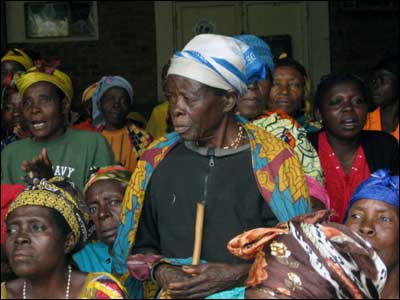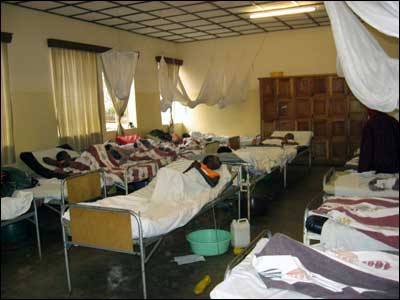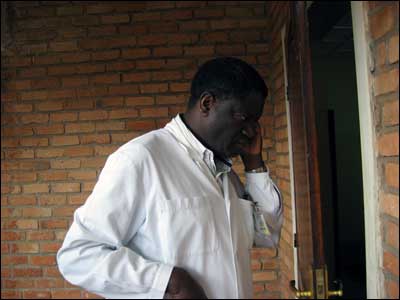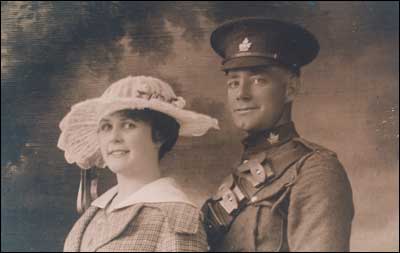[Click here to listen to podcast.]

In an open-air hospital waiting room in Bukavu, a city in the Democratic Republic of Congo, 400 women sang a song, asking God to bring peace.
They were tired, sick, and ashamed, all of them victims of rape, which has become the disturbing signature feature of the Congo’s unending war during the last decade.
Much attention has been paid to the brutality against women in the Congo’s war, but despite the worldwide news coverage, rape in the Congo has become standard.
Each day, more than 250 rape victims come to Panzi Hospital to be treated.
Dr. Denis Mukwege Mukengere, chief of obstetrics and gynecology at Panzi, has found himself at the forefront of the crisis. “You see thousands upon thousands upon thousands of people who are completely destroyed and left lifeless, and you know the world knows about this,” he said. “I’ve begun to lose my faith in mankind.”
He hasn’t always been the spokesman for tens of thousands of rape victims, but it was when he was working in rural areas that the crisis unraveled before his eyes.
In the late 1990s, Dr. Mukwege calculated that he saw about 50 women every year who had genital mutilation from violent rape. The war was to blame, and the number of rape victims grew “exponentially,” he said.
“I had never seen women with wounds to their genitals like this,” Dr. Mukwege said. “They shot them in the vagina or cut them with a bayonet.”
Rape has proven to be an effective strategy for the armed groups, forcing people to flee their homes, he added. Women who are raped face death, either by HIV (the AIDS virus) or infection. Men face shame, because they are often forced to participate in the rape acts. Villages go empty, except for the children, livestock, and goods left behind as booty for the rebel groups, he explained.
Dr. Mukwege works 14-hour days, seven days a week, and is the only surgeon around qualified to perform complex gynecological surgeries. Twenty-five percent of the rape victims who come to Panzi must undergo surgery to repair their torn tissues, he said.
In the surgery ward, hundreds of thin women lay on metal beds next to each other, wearing but threadbare cloths and protected by patchwork mosquito nets. Rubber hoses drip into open plastic buckets at the feet of their beds.

Inside his office, Dr. Mukwege spoke with a mix of outrage and exhaustion. His experiences with rape victims were documented in the 2002 Human Rights Watch report The War within the War: Sexual Violence against Women and Girls in Eastern Congo.
And he has been telling the international press about this crisis for years.
But despite coverage by media outlets that include BBC, CNN, and The New York Times,
the gruesome violence has turned even more troubling: It has become normal to both the international community and the local people, Dr. Mukwege said.
“That’s my fear, because we’ve shouted ‘Rape, rape, rape!’ And when nothing is done, it’s total impunity. Those who commit these acts — they know they can get away with it,” Dr. Mukwege said.
The result is a problem “so vast, but also in a sense forgotten, in terms of the international radar screen,” said Pernille Ironside, a child protection specialist for UNICEF in Eastern Congo.
“But in reality, what we are seeing in terms of sexual violence in the Congo is unparalleled in any other country.”
Listeners of Radio Okapi, a local station, can listen to daily reports of rape, but Dr. Mukwege feared the routine reporting was leaving the community numb.
Additionally, his patients have come to see their lives as worth nothing, Dr. Mukwege said.
One woman described her life as less valuable than that of a chicken, he said. “A chicken is someone’s property, and they protect it. And if you kill your neighbor’s chicken, the neighbor says to you, ‘You’re a bad person, why did you kill the neighbor’s chicken?’” he recalled her explaining to him. “But when I go out and get wood and other things, they just take me and rape me,” she told him.
Dr. Mukwege said he no longer listens to his patients’ stories. They are too emotionally draining, so he just sticks to performing operations.
“I thought I could help them,” he said. “But in the end, I understood that I got more and more depressed.”
Dr. Mukwege hosts reporters in between surgeries, but is skeptical of the value.
“I’ve seen important people in this world pass through the hospital. I’ve seen them in tears, and then nothing is done,” he said.

- Follow us on Twitter: @inthefray
- Comment on stories or like us on Facebook
- Subscribe to our free email newsletter
- Send us your writing, photography, or artwork
- Republish our Creative Commons-licensed content

















